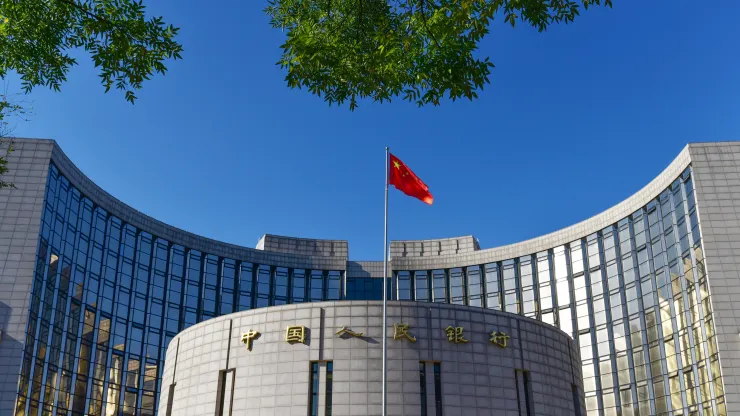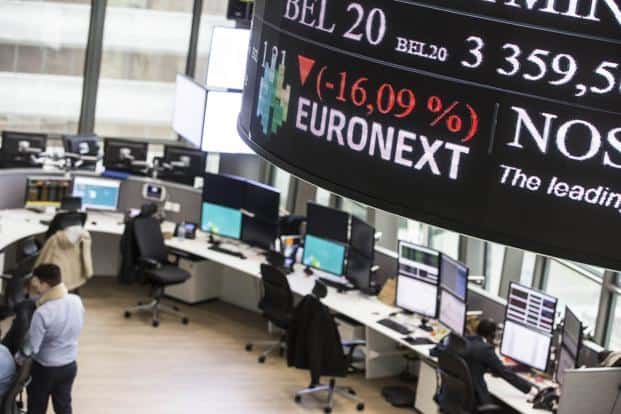
The People’s Bank of China cut two more key lending rates on Tuesday for the first time in 10 months to prop up growth in the world’s second largest economy.
The Chinese central bank cut the one-year loan prime rate by 10 basis points from 3.65% to 3.55%, and trimmed the five-year loan prime rate by 10 basis points from 4.3% to 4.2% — for the first time since August.
“On their own, 10bps cuts are too small to make a great deal of difference to monetary conditions, especially since market interbank rates are already below policy rates,” Capital Economics’ Julian Evans-Pritchard and Zichun Huang wrote in a note.
“But the PBOC tends to use changes in policy rates as signaling tool, with the heavy lifting being done by other tools such as adjustments to reserve requirements and bank loan quotas,” they added. “The latest round of rate cuts suggests that these tools will be deployed too.”
A gauge of Hong Kong-listed Chinese developers, the Hang Seng mainland properties index, fell more than 3%, with Country Garden slumping by about 5%. About half the participants in a Reuters poll had forecast a deeper cut of at least 15 bps to the five-year rate.
Losses in the property sector weighed on stock benchmarks in the mainland and Hong Kong, while the onshore and offshore Chinese yuan traded at their lowest since late November.
The latest rate cut come on the heels of two monetary easing moves last week. Last Thursday, the PBOC cut its one-year medium-term loan facility for the first time in 10 months, and lowered its seven-day reverse repurchase rate on Monday last week.
Most household and corporate loans in China are based on the PBOC’s one-year loan prime rate, while mortgages are pegged to the five-year rate.
Tuesday’s move was widely expected after a slew of economic data in the last few weeks — from industrial production and fixed asset investment to retail sales and trade in May — fell short of expectations. China appears to be teetering on the brink of deflation as reopening optimism fizzles.
Top investment banks, including Goldman Sachs and JPMorgan, recently cut their full-year GDP estimates for China and warned of headwinds ahead.
On Friday, China’s State Council pledged to roll out “more forceful measures” in a timely manner to “enhance the momentum of economic development, optimize the economic structure, and promote the sustained recovery of the economy.”
“Wider policy statements, including the readout from Friday’s State Council meeting, make it clear that officials are increasingly concerned about the economy and that supporting growth is now taking precedence over other concerns, including those about bank profitability,” Evans-Pritchard and Huang added.
























